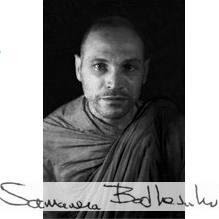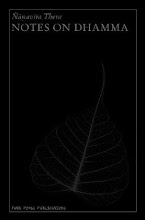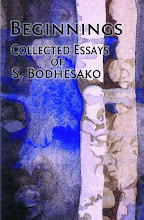The mountain to the east of Pai (the provincial capital) is gorgeous: heavy jungle in parts, forest in parts, and parts of it like grassy parkland with enough trees for shade but no undergrowth. Wide vistas. Very steep in places -- sometimes switchback roads pass the same viewpoint 5 or 6 times, each time from a higher vantage point, before moving on to the next hill.
The whole area from about 5 miles west of Pah Poe (i.e. about 10 miles east of Pung Duat) to the final downgrade of the mountains descending to the Pai valley floor (a very steep descent of 15 miles) is the finest country I've seen in Thailand.
Pai is a small town, about 3500 population, neither pleasant nor unpleasant, very ordinary, sleepy, old clapboard beside new concrete, tar roads needing repairs, an agricultural center of the only substantial valley between Mai Mali (where the westbound road began, 25 miles north of Chiang Mai) and Mae Hong Son (which is about 15 miles east of the Burmese border).
A night there at a temple, then over the next mountain on the most difficult day of the trip: walked 25 miles over the highest mountain in the area and through heavy rainstorm and clouds, simply because there was no place to stop, and the entire day there wasn't one single vehicle going my way (which will tell you how well travelled the road is, though there were 4 vehicles that day going the other way -- I find it an invariable rule of walking or hitching that no matter which way I'm going there's always more traffic the other way). Anyway, I reached the summit and looked out on a magnificent view of range after range of mountains -- I'm sure I could see well into Burma -- and a valley before me, and after a 5 mile walk I reached a village of Lisu people about 7 PM and spent the night there in the school house.
The Lisu are hill-tribe people who wear very colorful dress, have their own language and customs (animistic), live in bamboo and thatch houses, quite large but without windows, smoke opium, are quite clean (which is no easy thing in the hills: their village, after the storm, was a quagmire), keep a lot of animals (pigs, dogs, cows, horses, but I saw no buffalo, and of course a lot of hens; I also saw several cats, an uncommon sight in Thailand), most of which roam freely. The boys all have their head shaved saved for a square patch, about 2 inches on the side, in the front center of their skull. The children all wear pullover dresses, boys and girls alike. The men wear baggy pantaloons and shirt, the women skirts (black), blouses of many colors, and a brilliant light-blue apron, long hair in a bun. They eat white fluffy rice, unlike most of the Thais in the north of Thailand, who eat brown glutinous rice, and meat of course, and I was given also some sort of root, not potato but not too different, fried with chili and some type of green all quite spicy and also quite dry, so I couldn't eat much of it and drank a lot of water (which fortunately was available outside the schoolhouse in a rain-catchment tank). The food also was quite clean.
The people were hospitable but, aside from the curious children, they left me alone unless I approached them. Few of the women spoke Thai and the men spoke with more of a Bangkok accent than the heavy and hard to understand Northern dialect -- obviously they've learned their Thai in the school house (where the Bangkok dialect is taught, compulsory since various regions cannot understand each others' dialects), rather than through much contact with Thais. Also, their Thai is, in sore cases, not even as good as mine, though a few can speak quite well. I saw one vehicle in the village, a Jap pickup converted, as is common in Thailand, with two benches and a roof into a sort of jitney or small bus.
From a distance I saw some fields, but couldn't make out what they were growing -- obviously not rice, which requires bottom-land -- probably some poppies. The school was staffed by 3 teachers, all Thais from Chiang Mai who had no ties with the Lisu. The school had posters on the wall teaching the children to give respect and allegiance to the King and Queen, and to brush their teeth properly.
The village had about 30 to 40 houses, all on stilts about 5 feet off the ground in standard Thai fashion. This is very different from the Burmese style, which is to be found in the older buildings of Mae Hong Son (which, I believe, used to be part of Burma), where buildings sit flat on the ground. The old Burmese temples here, for example, rise in layers, like a square multi-layered cube, each level smaller than the lower one, with gingerbread fancy work on the eaves and other fittings, and ending, on top, with a spire or cupola. Navy gray de rigueur. Wood planks run vertically, not horizontally. Tin roofs always. (Thai temples all have tile roofs in a particular pattern of green, red, and yellow, and curlicue fancy work on the eaves rather than Burmese lattice-work.)
The tail-end of the trip was spent among the Shan people (who call themselves Tai-yai) who live around the border of Shan state in Burma. Some of these people have been there many generations (the border used to be farther east, I believe), but some of them are recent refugees (in the last 10-15 years) from the fighting in Shan state, where they are faced with a hostile Burmese army on one hand and a collection of various political and opium -- financed armies on the other.
The Burmese, who look upon the Shan people as inferiors, to be kept in their place and exploited, have been fighting a shifting panoply of revolutionary and mercenary armies since 1958, when Shan tried (as it still tries) to secede from the Union of Burma. (The Kayah state, south of Shan, also tries to secede, but though they have not succeeded either they are less harassed since they're not an opium-growing region.) The other armies, such as the Kuomintang, Communist Party of Burma, etc, control their various territories, collect taxes (mainly off the trade with Thailand, which profitably feeds a strong black market, and from the opium trade: the farmers have little left to give other than forced labor), but the Burmese army just takes over a town, confiscates all livestock and property, and tries to force the unwilling farmers to accept the government's socialist-collectivization plan, which is a tool for robbing the farmers and forcing them into a position of helplessness.
So some of the people have fled and settled in Thailand as refugees, living in remote border areas where conditions are very harsh (walking to one village the footpath was so muddy and tortuous that it took me 30 minutes to go half a mile; there are no facilities, schools, communications, etc, for these people; yet their life here is better than their prospects in Burma).
The one ray of hope in the situation of the Shan people is the Shan State Army, which seems to be, from what I can tell, to be a true people's army, with principles of democracy and freedom, and who are scrupulous in their relations with the people. They refuse to participate in the opium trade, so they are poor and poorly equipped, yet in the 10 or so years since their founding (mostly by disaffected students) they have grown into the second largest revolutionary army. (The CPB, funded by China, is twice their size, at about 15,000 men. The Burmese have 50,000 soldiers in Shan state.)
The refugees I've met (who sometimes return to Shan for visits) generally (but not always) speak well of the SSA, so if they can continue to grow in strength there may be a less than tragic conclusion to the Burmese uprising. Politics -- no space left to remark on the appearance of the refugee villages, their social structure, the more settled groups, etc., nor to speak of the Kayah village I visited, which underwent 7 years ago a remarkable mass conversion from Protestant to Buddhist. Only to say I've been collecting medicine from various contacts I have in Thailand, which are passed on to the refugees from Shan state. As bad as the Cambodian situation was they still got some international aid. The Shan get no aid at all. Many have illnesses, including malaria and typhoid. So I'm glad to be able to funnel some medicines their way.




